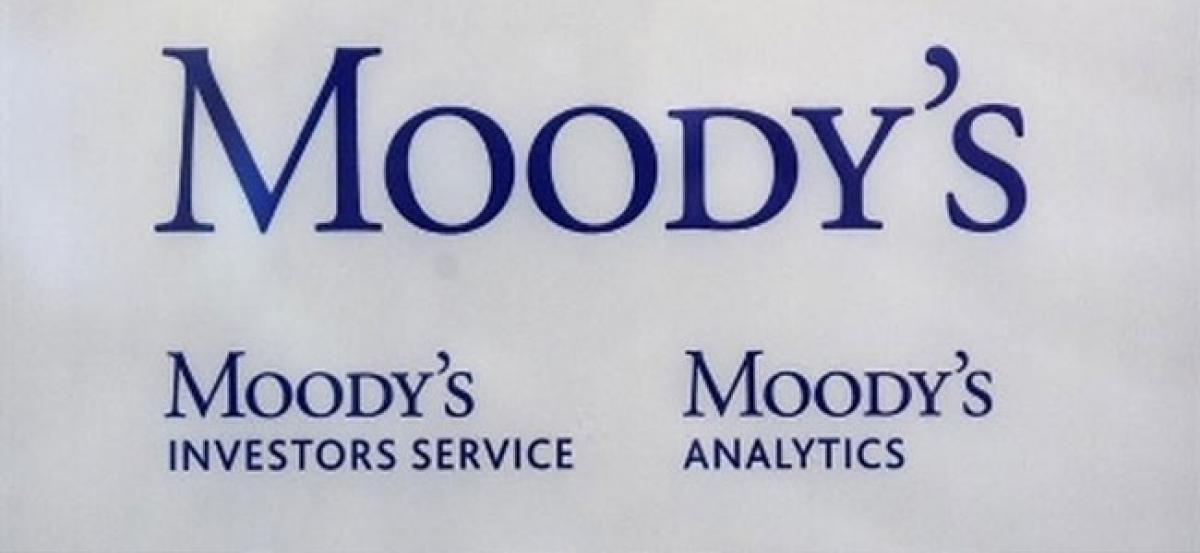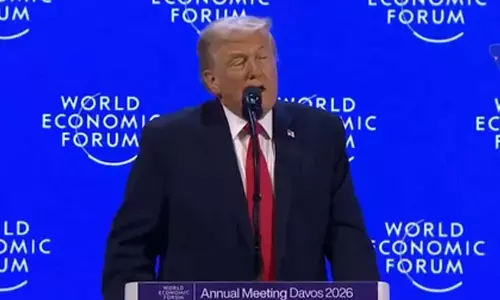Recent GST rate cut credit negative, says Moody's

Credit rating agency Moodys has said that the recent cuts in the Goods and Services Tax GST rates will weigh on the governments revenue collections and are credit negative for the country
New Delhi: Credit rating agency Moody's has said that the recent cuts in the Goods and Services Tax (GST) rates will weigh on the government's revenue collections and are credit negative for the country.
In a statement, Moody's said that the tax cuts, which follow cuts in January 2018 and November 2017, will weigh on the government's revenue collections and are credit negative because they will pressure the government's fiscal consolidation effort, which is already diminished relative to the original fiscal deficit targets set last fiscal year.
"We estimate revenue loss from the most recent tax cuts to be about 0.04 per cent - 0.08 per cent of the Gross Domestic Product (GDP) annually. Although the proportion of revenue loss is small, the vacillation in tax rates creates uncertainty around government revenue and comes amid persistent upside risks to its expenditures," it added.
The rating agency underlined that the government had budgeted gross tax revenue growth of 16.7 percent for fiscal 2019, which would end on March 2020, and GST collections will be an important driver of future government revenue because of a wider tax base and tax buoyancy (the rate of tax revenue growth relative to nominal GDP growth).
The government expects GST revenue to add up to an additional 1.5 per cent of GDP in the medium-term. Despite initial disruptions to the GST implementation, GST collection has increased since December 2017, but iterative changes to tax rates create downside risks to the target of Rs. 7.4 trillion ($ 100 billion) for the full fiscal year, Moody's stated.
The shortfall in tax revenue will likely be partly offset by stronger economic growth and improved tax compliance. Small businesses with revenue of less than Rs. 50 million make up 93 per cent of registered taxpayers. Hence, the majority of taxpayers will benefit from the simplified paperwork, incentivising greater tax compliance.
Furthermore, the introduction of a new electronic billing system earlier this year for all interstate movement of goods should also improve compliance and reduce tax leakage, Moody's continued.
In February 2018, India revised its estimated central government fiscal deficit for fiscal 2017 to 3.5 per cent of GDP, up from 3.2 per cent originally, and projected a 3.3 per cent deficit for fiscal 2018, up from 3.0 per cent.
Moody's further said, "We had considered the central government's 3.3 per cent deficit target for fiscal 2018 to be achievable, but risks are toward the downside given the potential shortfall in GST collections. Meanwhile, upside pressure on expenditures stems from a new minimum support pricing formula for agricultural products and higher social spending."
The rating agency expected a general government (combined central and state) fiscal deficit near 6.3 per cent of GDP in fiscal 2018, which is significantly wider than the 2.6 per cent Baa peer median.
Continued large fiscal deficits will likely result in a debt burden that remains elevated at around 68% of GDP over the next two years, Moody's further said.
It predicted that the Indian economy to grow by 7.3 per cent in fiscal 2018 and 7.5 per cent in fiscal 2019 and added that a normal monsoon and the hikes in the minimum support prices will support rural incomes and demand.














